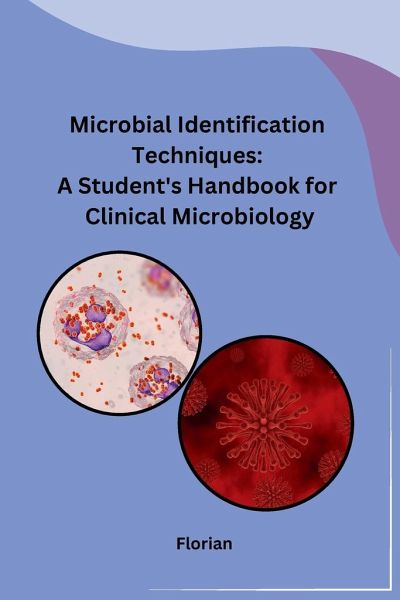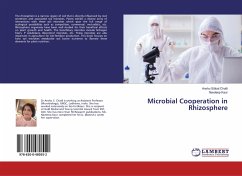Nicht lieferbar

Microbial Identification Techniques
A Student's Handbook for Clinical Microbiology
Versandkostenfrei!
Nicht lieferbar
In the field of clinical microbiology, the identification of microbial organisms is of utmost importance. This subchapter aims to highlight the significance of microbial identification techniques in diagnosing infectious diseases and guiding appropriate treatment strategies. Addressed to students specializing in microbiology, this content will provide invaluable insights into the intricacies of microbial identification and its relevance in the clinical setting. Microbial identification is the process of determining the specific organism causing an infection. This information is vital for healt...
In the field of clinical microbiology, the identification of microbial organisms is of utmost importance. This subchapter aims to highlight the significance of microbial identification techniques in diagnosing infectious diseases and guiding appropriate treatment strategies. Addressed to students specializing in microbiology, this content will provide invaluable insights into the intricacies of microbial identification and its relevance in the clinical setting. Microbial identification is the process of determining the specific organism causing an infection. This information is vital for healthcare professionals as it allows for the selection of the most effective antimicrobial therapy. Accurate identification ensures that patients receive timely and targeted treatment, minimizing the risk of complications and promoting better outcomes. There are various techniques used for microbial identification in clinical microbiology. These include traditional methods such as culture and microscopy, as well as modern molecular techniques like polymerase chain reaction (PCR) and DNA sequencing. By utilizing a combination of these methods, scientists can identify the causative agents with higher accuracy and efficiency. One key benefit of microbial identification is the ability to differentiate between pathogenic and harmless microorganisms. In the clinical setting, it is crucial to identify the specific pathogen responsible for an infection, as it helps determine the appropriate treatment regimen. Misidentification can lead to unnecessary prescribing of antibiotics, contributing to the global issue of antimicrobial resistance. Therefore, accurate identification is essential in preventing the misuse of antimicrobial agents and preserving their efficacy. Furthermore, microbial identification plays a crucial role in epidemiology. By identifying the source and transmission routes of infectious diseases, healthcare professionals can implement effective control measures to prevent further spread. This knowledge is especially critical in outbreak situations or when dealing with emerging infectious diseases















